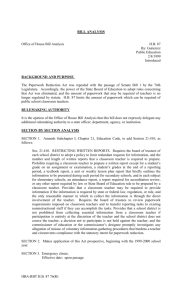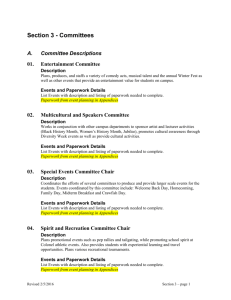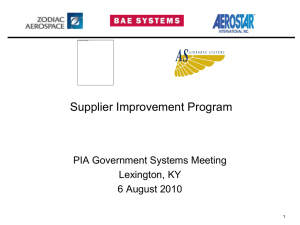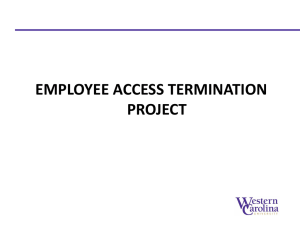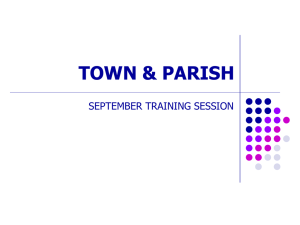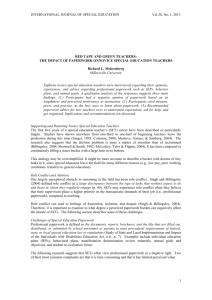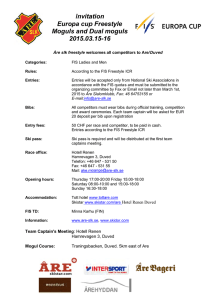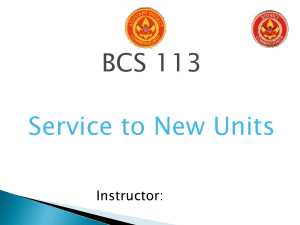chapter 2: case study 2.2 : pushing papers can be fun
advertisement
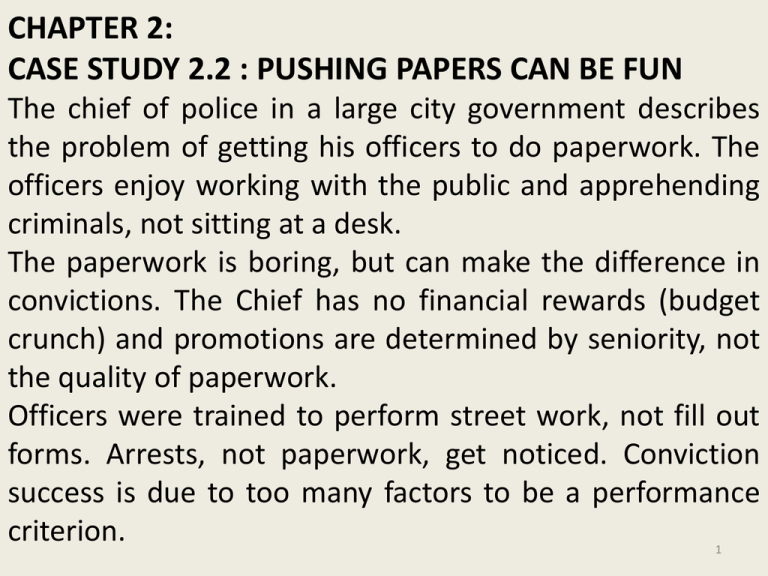
CHAPTER 2: CASE STUDY 2.2 : PUSHING PAPERS CAN BE FUN The chief of police in a large city government describes the problem of getting his officers to do paperwork. The officers enjoy working with the public and apprehending criminals, not sitting at a desk. The paperwork is boring, but can make the difference in convictions. The Chief has no financial rewards (budget crunch) and promotions are determined by seniority, not the quality of paperwork. Officers were trained to perform street work, not fill out forms. Arrests, not paperwork, get noticed. Conviction success is due to too many factors to be a performance criterion. 1 1. What performance problems is the captain trying to correct? The main problem in this case is poor police reporting of incidents, as well as the resulting lost cases in court. 2. Use the MARS model of individual behavior and performance to diagnose the possible causes of the unacceptable behavior. Motivation. There are several facts that suggest that the poor paperwork is due to lack of motivation. First, of1icers come into this profession because they want to work with the public and catch criminals, not sit in an office filling out reports. 2 Thus, the paperwork task does not fulfill their needs for personal growth. Second, social rewards(praise, recognition) result from the outside activities, not paperwork. Third, financial rewards do not encourage people to do paperwork. Promotions are based on seniority, so they motivate of1icers to stay with the force, not to complete paperwork. Competitions did not work, either. Ability. It isn’t certain that of1icers are able to complete the paperwork task well enough. They don’t seem to receive any training in this area. However, the captain’s discussion of the report competition suggests that at least some of1icers are able to perform this task well enough. 3 Role Perceptions. The captain seems to have emphasized the importance of paperwork to the of1icers, and they probably have learned that some cases have been lost due to poor reports. Thus, it is reasonable to conclude that many officers know that the quality of reports is an important of their job. At the same time, it may be possible that the captain has not emphasized the importance of report writing to the officers. Moreover, there is no evidence that rookies have clear role perceptions about this task when they first enter the department. Situational Factors. There is no information about factors beyond the of1icers’ control that might hinder or facilitate their job performance in report writing. 4 It may be possible that more time and other resources are needed to complete the reports better, but this information is not given in the case. 3. Has the captain considered all possible solutions to the problems? If not, what else might he do? The captain has looked a variety of incentives to motivate of1icers to complete the paperwork, but other strategies might be considered. For example, the Crown counsel might meet occasionally with of1icers to describe examples where good or bad paperwork influenced the success of their cases. The captain might try to publicly recognize officers who have contributed to a successful case mainly due to their thorough reports. 5 The police chief might also consider the possibility that some of1icers lack the competencies to perform the report writing task. A needs assessment might determine who should receive formal training in report writing. A “train the trainer” approach might be considered where of1icers who are most effective at report writing receive special training to teach other of1icers. This might add further social esteem to performance in report writing. 6
